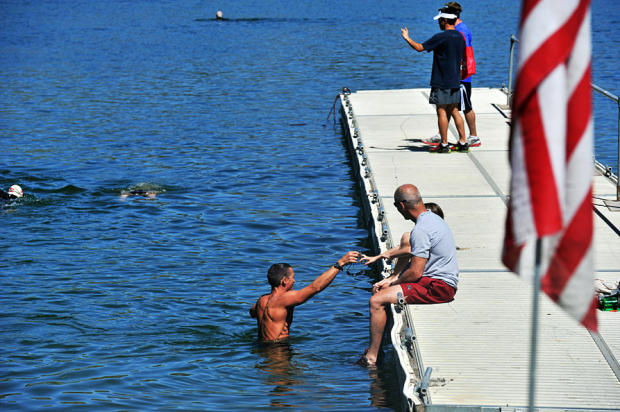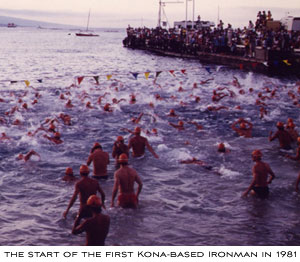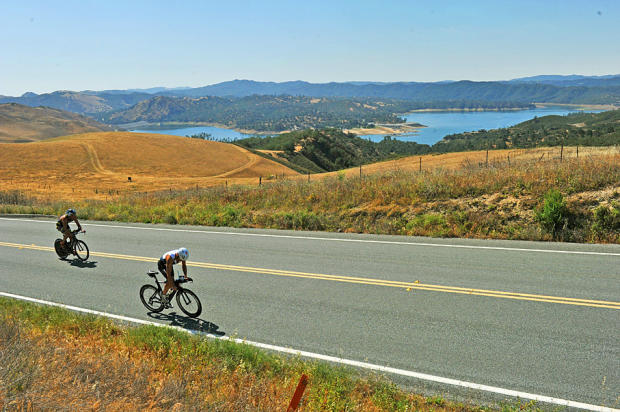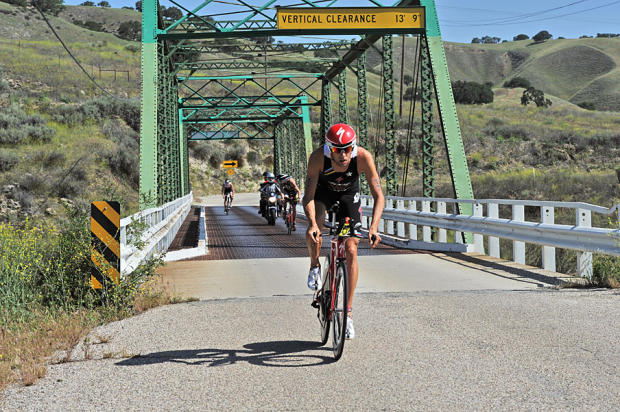Getting That Special Event Permit
I originally wrote what's below in March, 2008. I've updated it to reflect changes that have taken place, and changes in my thinking (though, happily, I find that what I wrote back then stands up pretty well).
If a race is going to die before the starting gun ever gets fired, this is the burial ground filled with the most corpses. You've got to decide where to start the permitting process, and I generally prefer to start at the top, not where I'm told to start.
When I decided to resurrect the (now re-defunct) United States Triathlon Series in 1997 I chose to approach the city of Oceanside, California. This eventually became the scene of what is now the Oceanside 70.3.
But in 1997 Oceanside had not had a triathlon in years, and was considered a dead venue. But I thought it had promise. The problem was convincing both the city and adjacent Camp Pendleton Marine Base to play ball. I had a strategy.

I called the largest area newspaper and asked for the reporter who covered the local Oceanside city politics beat. I got the reporter on the phone and asked, "Who's the city council member with the most ambition, who is good at building a consensus, and who's got juice when it comes to getting things done?"
"Oh, that's easy," said the reporter. "That's Carol McCauley."
So I scheduled an appointment with Councilperson McCauley, and explained what I wanted to do. She said, "Come back Tuesday."
So I came back Tuesday, walked in, and there were the head of lifeguards, fire, city police, parks & rec, risk management, harbors & beaches, harbor police, special events, and public works.
"Tell these people what you told me," she said. So I did. Then she turned to all the department heads and said, "Is there any reason why we can't host this event?"
I didn't have to make a sale to anyone else. Yes, these people had the power to make my life difficult, so I had to be politically astute all along the way. But they all reported to the city council and the mayor.
My advice: Do not ask where you're supposed to go in order to get a special event permit application. Go straight to the top. I've put on a lot of races, and I don't believe I ever met the person at the window who takes special event permits.
Of course, it helps if you go in prepared. I started the process not only with the demographics of triathletes, and what I thought might represent a reasonable financial impact, but also unquantifiable elements, such as: "Solana Beach has a triathlon, so does La Jolla, Carlsbad, Pacific Beach. San Diego and Carlsbad have big marathons. Carlsbad has a huge 5000-meter road race. What does Oceanside have? Why can't Oceanside play? It's got better physical attributes than any of these cities. It and its citizens deserve their own first-class endurance event, don't they?"
Fast forward to today, Oceanside is the triathlon capital of San Diego. Carol McCauley had the vision to see that it could happen, and the willingness to stick her neck out. No special events functionary could make that call. You need a person with heft on your side. You need to find out who that person is, and make that one sale.
But what about Camp Pendleton? I didn't have to worry. Carol McCauley made the sale for me. I didn't rank on that marine base. But the camp's municipal neighbor to the south certainly did.
Perhaps the person you need to make the sale to isn't a council member or mayor. Perhaps it's a county supervisor. But here's a hint: Most county, state and federal agencies want to be good and helpful neighbors to their local towns and cities, and what you need is a local booster. If it's not someone in government, it's someone in business. Nowadays I go straight to the local tourism authority; the local Chamber of Commerce; or whatever group is in tight with business.
It helps to know the rules and regs. In California we have lakes and reservoirs that must, by statute, be used for recreation, because that sort of multiple use was part of their original charter, when funds to build these reservoirs were appropriated. Putting on a triathlon is not a bother to them. It is a welcome to them. They have staff whose sole job is to go out and find people to use their bodies of water. (Just, sometimes they need to be reminded of that statute, and to be shown how easy it is to be in compliance by doing business with you.)
Also, though, please make sure you know when a permit is required. I called before entering a race I saw on the calendar. I couldn't imagine the RD getting a permit for a particular stretch of state highway. I got him on the phone. "I'm requiring everyone to follow the rules of the road." He replied. "I still need a permit?" This was last year, in 2018! Needless to say, I didn't enter his race.
In some bodies of water you need 3 or 4 permits: From the owner of the water (often a water company); the entity that controls the area (city, county, National Forest); and the concessionaire (if any). This may all be very easy. I've gotten the okay from all these in a day.
But! The trick is not to start at the bottom, where traveling up does represent work for those who must sign off on permits. It's to start at the top, where a successful special event represents a feather in one's cap.
The Series:
• How to Be a Race Director
• Picking a Course
• Pacify the Locals
• Getting That Special Event Permit
• Assembling Your Race Committee
• Your Race Budget
• Traffic Plan
• Getting Volunteers
• Getting Sponsors
• Attracting Media
• Filling Your Race
• Aid Stations





Start the discussion at slowtwitch.northend.network